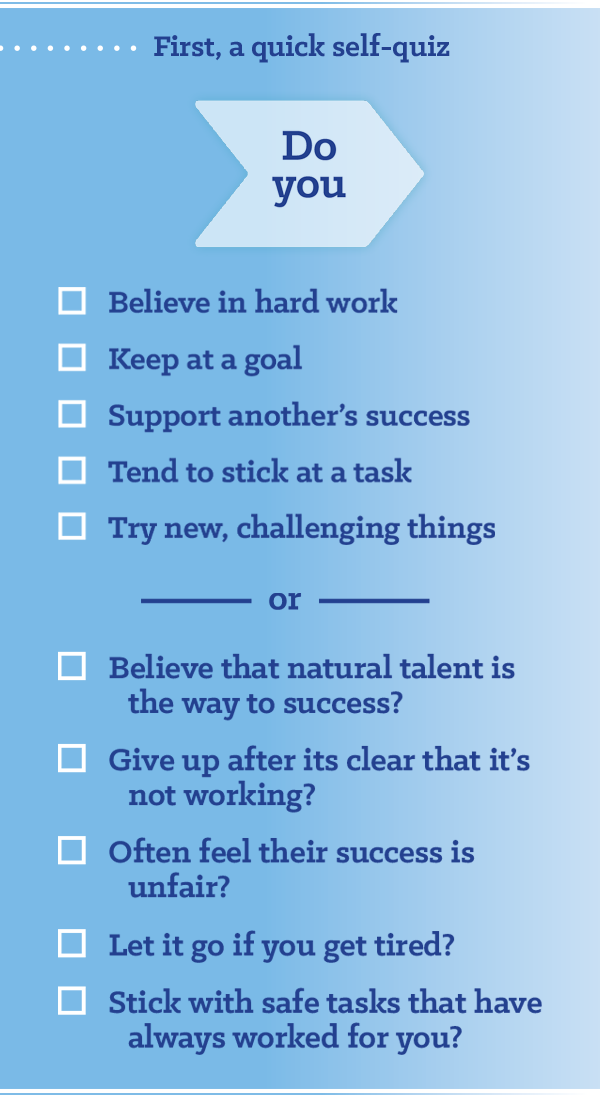3 Steps to Mastery, in Any Area



KEY: If you selected the left side for three or more of the above questions, that indicates you may lean toward the right side Growth Mindset. If you responded with three or more of right column. that may indicate you lean toward a Fixed Mindset.
By Dr. Delbert Baker

What is this mindset business all about? It’s about the awesome power of your thoughts and how they can make a huge difference with the quality and success of your life and those around you. For the last few decades there has been a social buzz about the need to have a “growth mindset,” as opposed to staying in the rut of a “fixed mindset.”
The Growth Mindset emphasis began with Dr. Carol Dweck of Stanford University nearly 30 years ago. She and her team became interested in why students were failing and how to help them to begin using Growth Mindset, to think better and do better. She famously gives a Growth Mindset illustration about a high school in Chicago where students had to pass a certain number of courses to graduate, and if they didn’t pass a course, they didn’t get an F but the grade “Not Yet.”*
In Philippians 3:13-14 (NKJV), long before Carol Dweck, the Apostle Paul summed up this healthy growth approach to life and salvation. He said, “one thing I do, forgetting those things which are behind and reaching forward to those things which are ahead, I press toward the goal for the prize of the upward call of God in Christ Jesus” (NKJV). Here, in three steps, Paul articulates what can successfully launch you on your path to growth thinking.
First, Select Your Focus: One thing I do. Paul masterfully notes there are many internal and external voices, but he chooses one thing—laser focus. He concentrates on the positive and rejects the negative. There is energy and growth in the selective focus and rejecting all negativity.
Second, Strategize the Goal: thinking, forgetting, reaching forward. This is an example of brilliant growth thinking as Paul notes what holds him back, and, what propels him forward. Great philosophy of success. I run 26.2-mile marathons and this is the type of growth thinking that has helped me to finish more than 50 races on all seven continents. You develop a strategy and then work it!
Third, Strive until Success: There’s no quitting here. No, there’s incredible determination and purpose as Paul talks about goals, prize, upward call, toward His magnificent model Jesus Christ. It’s inspiring to feel the energy, strength and motivation.
If you want better returns on your life efforts begin to implement these effective principles.